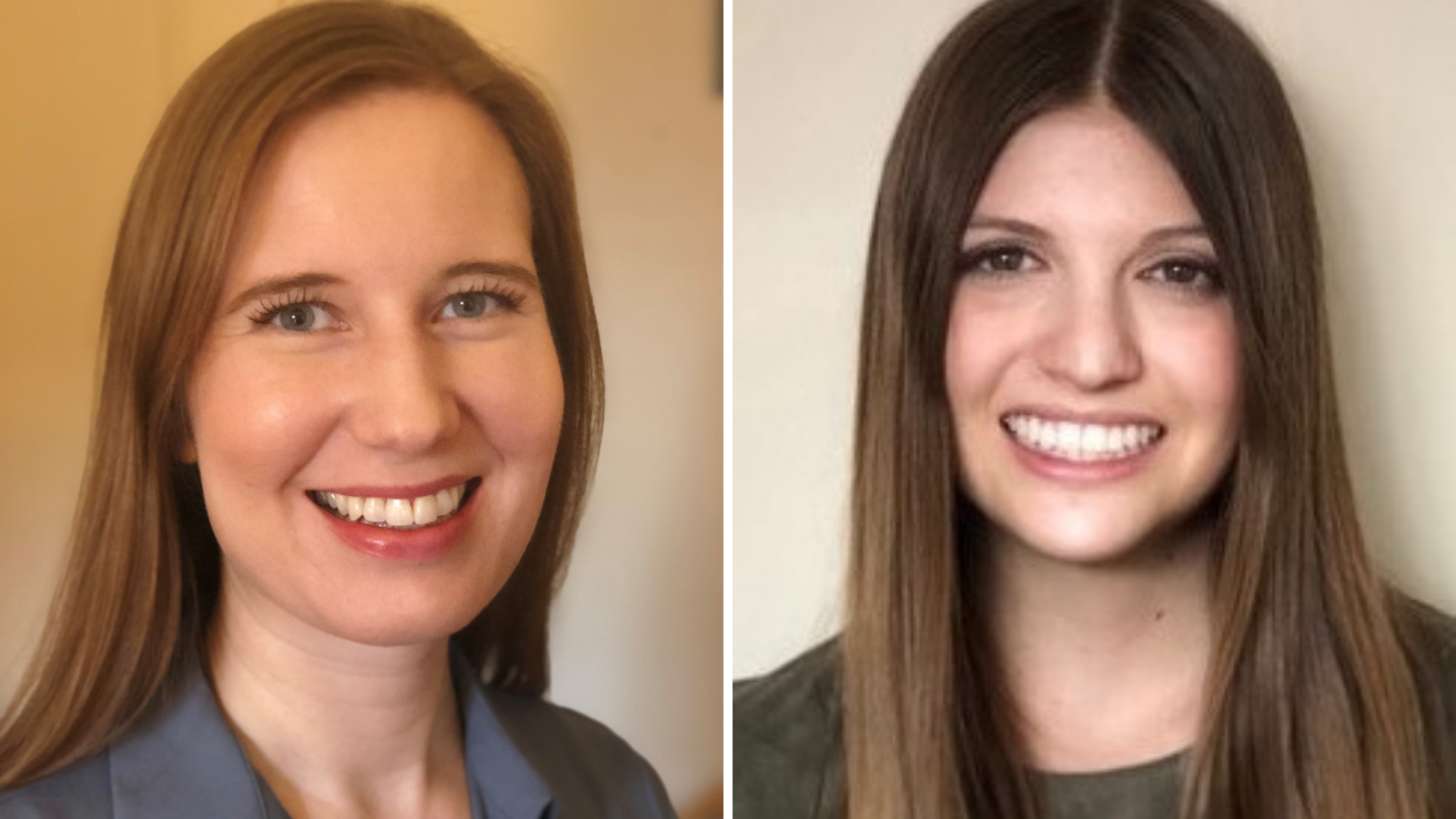November 4th is Genetic Counselor Awareness Day - a day for celebrating and raising awareness of the important role genetic counselors play in the healthcare community.
In recognition of this day, we spoke to two pediatric Genetic Counselors from the Division of Medical Genetics at Weill Cornell Medicine, Tessa Rootenberg and Katherine Bergstrom, MS, to learn more about their roles as Genetic Counselors and what they love most about helping families.

L to R: Katherine Bergstrom, Tessa Rootenberg
What is a genetic counselor and how do they help patients?
Katherine Bergstrom: Genetic counselors provide information, guidance and support to patients who are affected by a genetic condition, have a family history of a genetic condition and/or are interested in learning more about their likelihood to have or pass down a genetic condition. Genetic counselors help patients and their families explore benefits, risks and limitations of genetic testing, interpret genetic testing results and adapt to the implications of results. They also help patients process information about their family histories and genetics as well as empower patients and their families to make decisions that are best for them, such as whether to pursue genetic testing.
Why did you want to become a genetic counselor?
Tessa Rootenberg: Once I began learning about genetics in my high school biology class, I became fascinated by the way that our DNA interacts with our unique life experiences to shape the people we are. As I learned more about genetic counseling, I was intrigued by the opportunity to serve as an ally for patients as they navigate what their genetic information means to them.
Katherine Bergstrom: I was always drawn to helping professions and when I learned about genetic counseling, I felt that it blended science and working with people in a way that seemed well-aligned with my interests. Coming from a family with a history of a genetic condition, I recognized the importance of having information and support and wanted to pursue a career that would allow me to provide that for patients and families.
What do you love most about working with patients and families?
Tessa Rootenberg: I particularly enjoy hearing the unique stories that my patients choose to share with me. Additionally, I often have the opportunity to work with many of my patients’ family members throughout the genetic counseling and testing process!
Katherine Bergstrom: I particularly enjoy listening and being an advocate and source of support for patients and families.
What happens during an appointment with a genetic counselor?
Tessa Rootenberg: A typical appointment begins with the genetic counselor and patient setting goals and expectations for the session. The genetic counselor will then explore the patient’s personal and family health history to better understand genetic risks, and will discuss the medical and emotional significance of genetic information. If the genetic counselor works within a multidisciplinary team, the patient may meet with other providers, and a physical exam may be performed. By the end of the initial visit, the genetic counselor and patient collaborate to decide what, if any, genetic testing, is best for patients and their families.
When should a patient see a genetic counselor?
Tessa Rootenberg: There are many reasons why a patient might consider seeing a genetic counselor. In general, individuals who may have a personal or family history of a condition with a genetic link, or individuals who are considering genetic testing for any reason can benefit from meeting with a genetic counselor. A patient might meet with a genetic counselor in a variety of specialty areas including prenatal, pediatrics, oncology, neurology, cardiovascular diseases, and metabolic diseases. Patients are often referred to see a genetic counselor by their primary care physician or specialty provider, or, they may seek out genetic counseling services by using the “Find a Genetic Counselor” tool, which is accessible through the National Society of Genetic Counselors at FindAGeneticCounselor.com
How often do patients see a genetic counselor?
Katherine Bergstrom: Sometimes genetic counselors meet with patients one time, sometimes a few times and sometimes regularly, such as every one to two years. This typically depends on the reason for genetic counseling, interest in genetic testing, genetic testing results, and/or patient/family preference.

